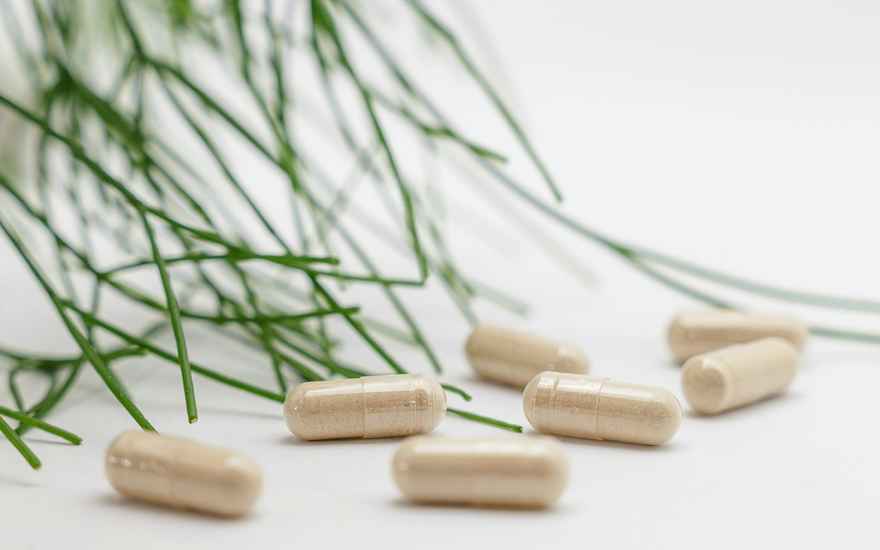Exploring the Synergy of Supplements: Insights from Natural Cure Labs Founder, Damon

This week's support group call was particularly enlightening with Damon, the esteemed founder of Natural Cure Labs, gracing us with his presence. As someone who has collaborated with Damon since 2019, I can attest to his integrity, expertise, and unwavering commitment to providing supplements for individuals with immune issues. For those who had the opportunity to join our call, it was evident why Life With Herpes exclusively endorses and collaborates with Natural Cure Labs.
Damon discussed how supplements play a vital role in our modern lifestyle, offering a convenient way to fill nutritional gaps and support overall health. While they are commonly used to address deficiencies or enhance specific bodily functions, it's crucial to approach supplement usage with a healthy dose of skepticism. Empowering individuals to conduct their own research fosters informed decision-making, enabling them to discern between evidence-based benefits and exaggerated claims. Moreover, it's imperative to recognize that supplements should complement a balanced diet rather than serve as a panacea for all health woes. By incorporating supplements judiciously, individuals can optimize their health and well-being while maintaining a realistic perspective on their role in overall wellness.
Damon delved into the properties of Monolaurin, a potent antimicrobial agent, derives its significance from its origins as a medium-chain fatty acid present in breast milk and coconut oil. Lauric acid, the primary component of monolaurin, possesses remarkable antimicrobial properties, making it a valuable tool in combating various pathogens, including bacteria, viruses, and fungi. Monolaurin's ability to disrupt the lipid membranes of microorganisms effectively inhibits their growth and replication.
For individuals living with herpes simplex virus (HSV), monolaurin has garnered particular attention due to its potential therapeutic benefits. HSV, a common viral infection causing cold sores and genital herpes, can be challenging to manage. Monolaurin's antiviral properties offer a promising approach to mitigating HSV symptoms. Research suggests that monolaurin can interfere with the lipid envelope of HSV, thereby inhibiting its ability to infect host cells and replicate. This mechanism of action makes monolaurin a compelling option for individuals seeking adjunctive therapy for HSV management.
Moreover, monolaurin's natural origins in breast milk and coconut oil underscore its safety and tolerability for human consumption. Unlike some pharmaceutical interventions, monolaurin poses minimal risk of adverse effects, making it a favorable option for long-term use.
Moving onto L-Lysine, an essential amino acid, has gained significant attention for its potential role in managing herpes simplex virus (HSV) infections. Numerous studies have demonstrated the efficacy of L-lysine in reducing the severity and frequency of HSV outbreaks. Damon highlighted these advantages over prescription medications, emphasizing its safety profile and bioavailability compared to alternatives.
L-lysine works by inhibiting the replication of HSV, particularly by competing with another amino acid, arginine, which is crucial for viral replication. By limiting the availability of arginine, L-lysine can effectively suppress the growth and spread of HSV. This mechanism of action makes L-lysine a valuable adjunctive therapy for individuals experiencing recurrent HSV outbreaks.
Moreover, L-lysine's safety profile is a significant advantage, especially when compared to prescription antiviral medications commonly used to manage HSV infections. While antiviral drugs may carry side effects and risks, L-lysine is generally well-tolerated, with minimal adverse reactions reported in studies and clinical use. Additionally, L-lysine's bioavailability ensures efficient absorption and utilization within the body, maximizing its therapeutic benefits.
Overall, L-lysine offers a promising option for individuals seeking natural and effective solutions for managing HSV outbreaks. Its demonstrated efficacy, safety, and bioavailability make it a compelling choice for those looking to reduce the frequency and severity of HSV symptoms while minimizing potential side effects associated with traditional pharmaceutical interventions.
Andrographis, a herb with a rich history spanning thousands of years in Ayurvedic medicine, has emerged as a potent supplement for inhibiting herpes simplex virus (HSV) types 1 and 2. Its traditional use for immune support and antiviral properties has garnered attention in contemporary research. Damon emphasized its preventive benefits against common colds and respiratory infections, showcasing its broad spectrum of action against viral pathogens.
Studies have shown that Andrographis contains active compounds like andrographolides, which possess antiviral properties and can inhibit the replication of HSV. By targeting various stages of the viral life cycle, Andrographis helps suppress HSV activity, reducing the frequency and severity of outbreaks.
Furthermore, Andrographis's immune-enhancing properties bolster the body's defense mechanisms, making it more resilient against viral infections like HSV. By modulating immune responses, Andrographis not only helps combat active viral infections but also aids in preventing their recurrence.
Damon, in his comprehensive discussion on supplement usage, highlighted the importance of tailoring dosage to individual factors such as weight, gender, and health objectives. He elucidated a structured approach, comprising the introduction phase, maintenance phase, and immune challenge phase, offering guidance on adjusting supplement intake accordingly. Moreover, Damon underscored the critical significance of scrutinizing supplement sources, certifications, and manufacturing processes. We discussed how, Natural Cure Labs, Damon's company, prioritizes quality ingredients, ecological sustainability, and transparency in labeling and testing, thereby ensuring consumers' trust and confidence in the products they choose.
Here's a list of resources from the call:


0 comments
Leave a comment
Please log in or register to post a comment